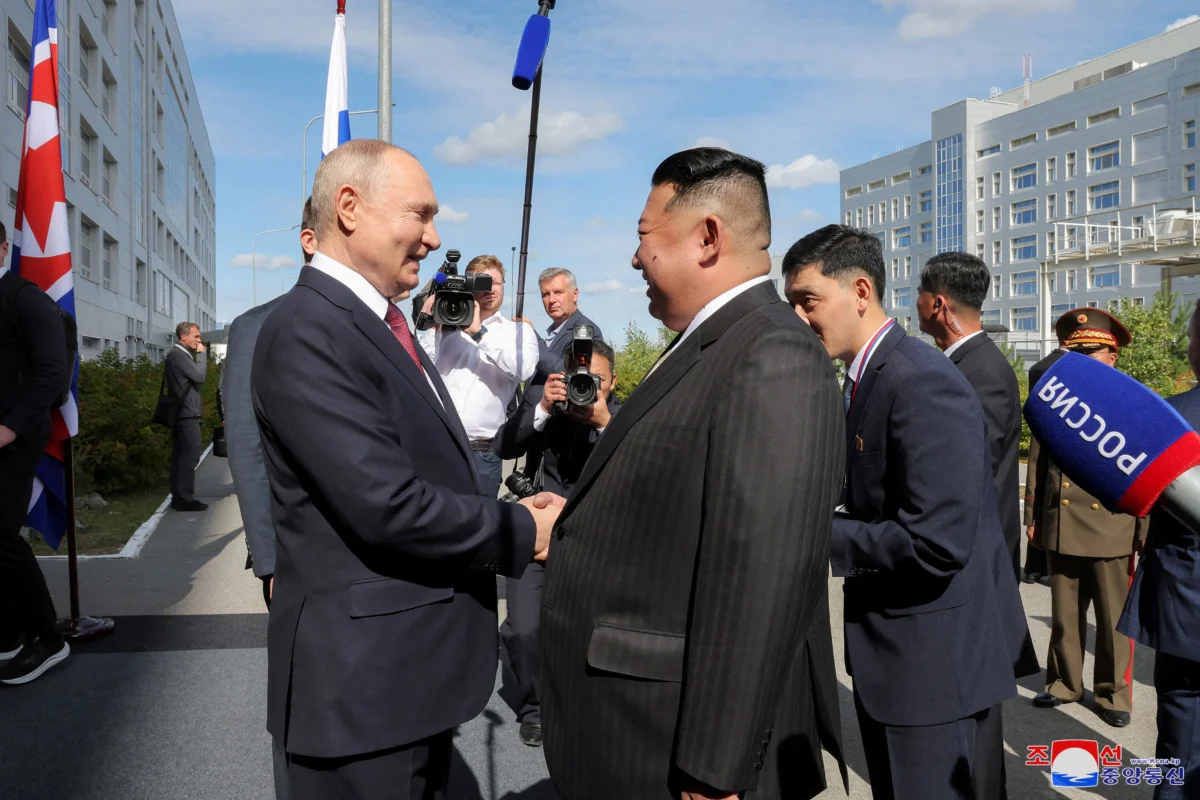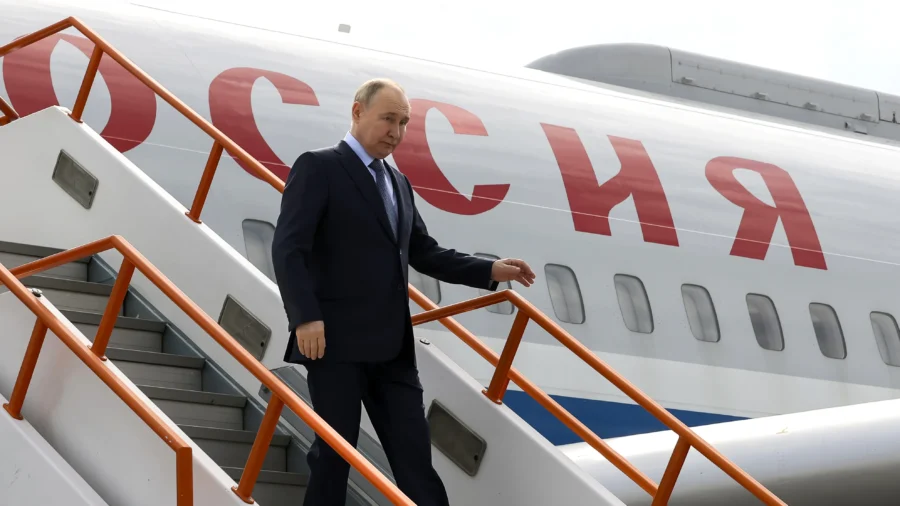Russian President Vladimir Putin is paying a state visit to Pyongyang on June 18, during which he is slated to hold talks with his North Korean counterpart, Kim Jong Un.
While the two leaders have met several times, it is Mr. Putin’s first visit to the North Korean capital in 24 years.
Mr. Putin is accompanied by a high-powered delegation that includes Foreign Minister Sergey Lavrov, Defense Minister Andrei Belousov, and other top Russian officials.
On the eve of his trip, the Russian leader hailed the historical ties between the two countries.
“Pyongyang has always been our committed and like-minded supporter,” he said in a public message carried by North Korea’s state-run media.
North Korean media outlets marked Mr. Putin’s visit by publishing a series of articles praising Russia and voicing support for Moscow’s foreign policies.
“The Korean people will always be on the side of the Russian government and people, and fully support their struggle to defend their national sovereignty and security interests,” one article read.
In his public message, Mr. Putin also slammed the “collective West” for attempting to retain what he called its “global dominance” at the expense of sovereign nations.
Like Russia, he said, North Korea is “prepared to confront the efforts of the collective West to prevent the emergence of a multipolar world order based on justice and respect for [national] sovereignty.”
Both countries, he said, seek to create “alternative trade and settlement mechanisms—not controlled by the West—and resist illegitimate, unilaterally imposed [Western] sanctions.”
Like Russia, North Korea is no stranger to economic sanctions imposed by the West.
In 2017, the U.N. Security Council (UNSC) imposed a raft of sanctions on Pyongyang after the latter test-fired a ballistic missile, raising tensions across the region.
In 2022, Russia joined China to stymie U.S.-led efforts to impose a fresh round of UNSC sanctions on North Korea for its ballistic missile program.
Along with face-to-face talks between the two leaders, Mr. Putin’s one-day visit to Pyongyang will include a state reception, gala concert, document-signing session, and joint press conference.
After departing Pyongyang on June 19, Mr. Putin and his accompanying delegation are slated to visit Hanoi for talks with Vietnamese officials.
Arms Transfer Claims
Since Russia launched its invasion of Ukraine in early 2022, Moscow has openly sought to enhance relations with Pyongyang—ringing alarm bells in Washington.
The deepening bilateral ties have been accompanied by frequent U.S. claims that North Korea is secretly supplying Russia with ballistic missiles for use in Ukraine.
In previous remarks, Moscow and Pyongyang have openly pledged to enhance bilateral cooperation, especially in military technology.
Last September, Mr. Putin met his North Korean counterpart at a landmark summit in Russia’s Far East.
After the meeting, Moscow said the two countries’ expanding ties included “military interaction and discussion of urgent security issues.”
Last year’s Putin–Kim summit prompted speculation among Western officials that Russia and North Korea were exchanging arms and associated technologies.

At the time, U.S. national security adviser Jake Sullivan warned that Pyongyang would “pay a price” if it was found to be supplying Moscow with weapons for use in the Ukrainian theater.
In January, Mr. Putin hosted Choe Son Hui, North Korea’s foreign minister, for rare talks at the Kremlin.
Soon afterward, a Kremlin spokesman described Pyongyang as an “important partner” with whom Moscow sought to “further develop relations in all areas, including sensitive ones.”
Ms. Choe said her meeting in Moscow had served to confirm that bilateral ties were “swiftly moving ahead.”
New ‘Security Architecture’
Shortly before Ms. Choe’s visit to Moscow, the White House, citing “declassified intelligence,” alleged that Russia was using short-range North Korean missiles to strike targets in Ukraine.
On June 17, U.S. State Department spokesman Matthew Miller repeated the claim, asserting that Pyongyang had recently provided Russia with “dozens of ballistic missiles and over 11,000 containers of munitions.”
Mr. Putin, he said, was increasingly “desperate” to replace arms and equipment lost on the battlefield and hoped to acquire them from both North Korea and Iran.
Moscow, meanwhile, has repeatedly denied Western claims that it has been receiving arms shipments from either country.
However, Mr. Putin’s state visit to Pyongyang suggests that bilateral ties are closer than ever.
Russian presidential aide Yury Ushakov recently told reporters that Moscow and Pyongyang could sign a “comprehensive strategic partnership treaty” during—or shortly after—Mr. Putin’s visit.
Such a deal, Mr. Ushakov said, would “take into account what has happened between our two countries in recent years in terms of international politics, economics … and, of course, security issues.”
Mr. Putin, in his public letter, said both countries hoped to establish what he described as an “equal and indivisible security architecture in Eurasia.”
Reuters contributed to this report.
From The Epoch Times

